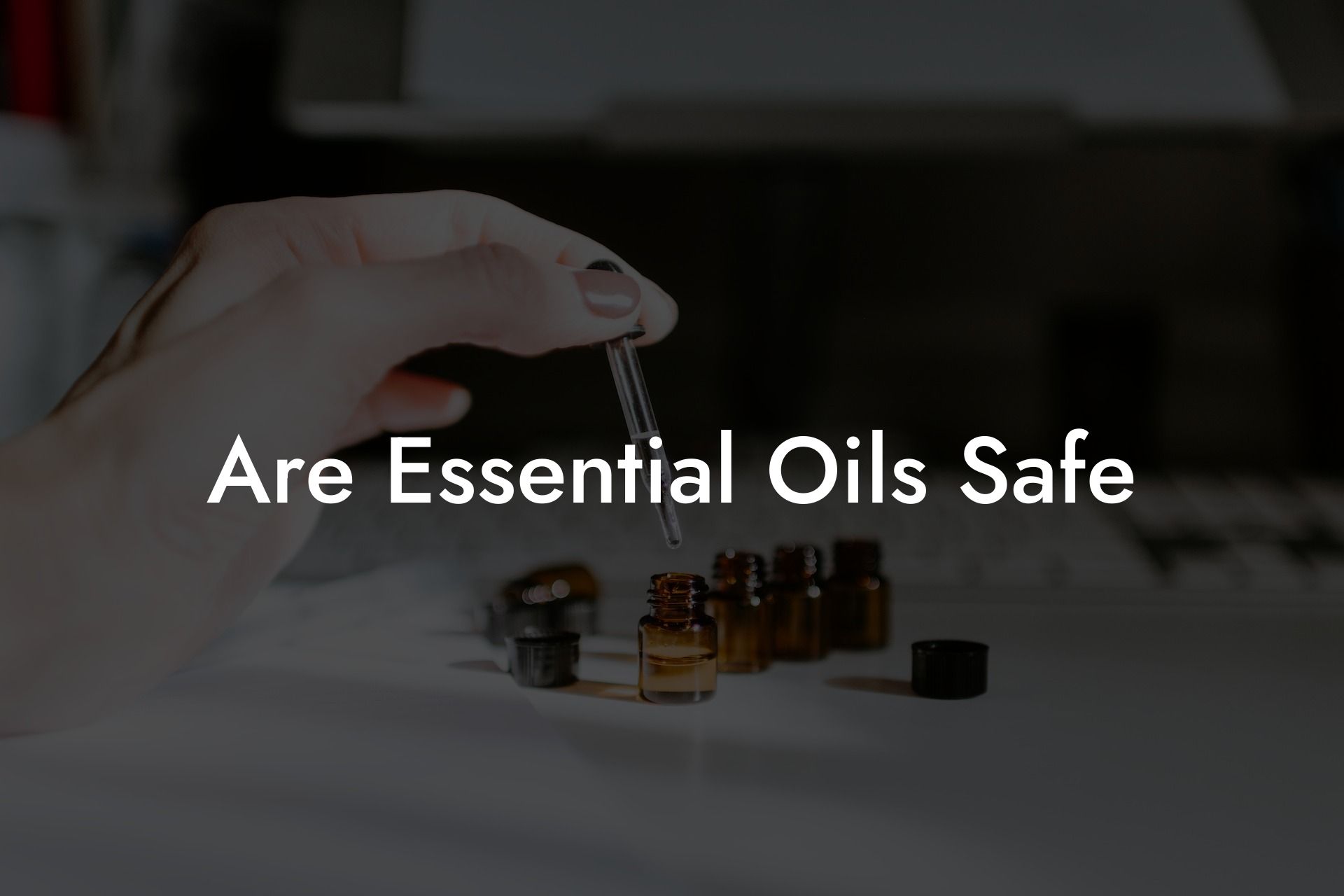Discover the safety aspects tied to essential oils, whether using them for aromatherapy, skincare, cleaning, or other purposes. It’s vital to understand how to use these natural fragrances safely to make the most out of their many properties and benefits.
Table of Contents
What are Essential Oils?
Essential oils are highly concentrated natural extracts derived from plants, distilled or cold-pressed to capture their aromatic essence. They contain numerous bioactive compounds that can bring a range of health and wellness benefits when used properly, such as promoting relaxation, balancing moods, and fostering overall well-being.
Potential Risks and Dangers
While essential oils provide numerous benefits, they also come with potential risks and dangers if misused. These risks may include:
- Allergic reactions: Some individuals may experience skin irritation, itching, or rashes when applied topically.
- Photosensitivity: Some oils, like citrus-based ones, can cause increased sensitivity to sunlight, potentially leading to sunburns or skin irritation.
- Toxicity: Ingesting essential oils in high concentrations can be toxic and lead to adverse reactions such as nausea, vomiting, dizziness, and in extreme cases, seizures.
- Interactions with medications: Some essential oils may interact with medications, causing adverse side effects or reducing their efficacy.
How to Safely Use Essential Oils
To enjoy the benefits of essential oils without compromising safety, follow these guidelines:
- Choose high-quality oils: Select oils from reputable brands, such as Oshu Oils, ensuring you’re getting pure and natural products.
- Dilution: Always dilute essential oils with carrier oils (e.g., jojoba, almond, or coconut oil) when applying them topically. The general rule is to aim for a 1-5% dilution, using approximately 6-30 drops of essential oil per ounce of carrier oil.
- Patch test: Perform a patch test on a small area of skin before full topical application to check for potential skin irritations or allergies.
- Avoid ingestion: Do not consume essential oils without consulting a healthcare professional, as it may lead to toxicity and health complications.
- Children and pets: Use caution when using essential oils around children and pets. Certain oils can be harmful or toxic to them. Always consult with a professional before using essential oils during pregnancy or on infants.
- Storage: Store essential oils in a cool, dark place, away from direct sunlight or heat to maintain their potency and prevent oxidation.
Are Essential Oils Safe Example:
Imagine you’ve just purchased Oshu Oils Lavender Essential Oil to help promote relaxation and combat stress. To ensure safety, follow these steps:
- Select a carrier oil, such as almond or coconut oil.
- Dilute the Lavender Oil by adding 12 drops of essential oil to an ounce of your chosen carrier oil, achieving a 2% dilution.
- Apply a small amount of the mixture to the inside of your wrist and cover with a bandage for 24 hours to check for any skin irritation.
- If there are no signs of irritation, use the diluted Lavender Oil by massaging it onto desired areas or adding it to your diffuser for a soothing aromatic experience.
- Keep your Lavender Oil safely stored, away from sunlight and children, to maintain its potency and efficacy.
Being mindful of safety precautions and proper usage, essential oils can provide an array of benefits for holistic wellness. Ready to dive deeper into the world of essential oils and aromacology? Explore more articles on the Oshu Oils blog and browse our collection of potent, artisan essential oils. Don’t forget to share this helpful guide with your friends and family to spread the knowledge of safely using essential oils.





















